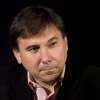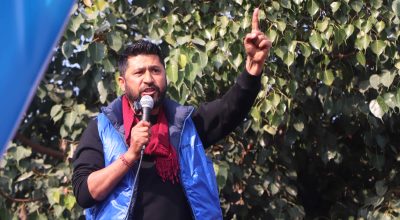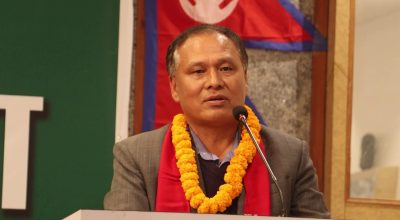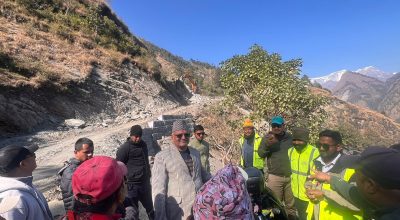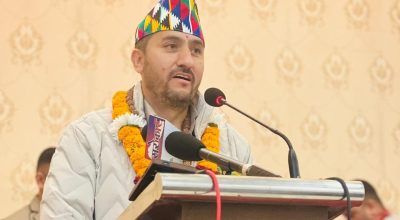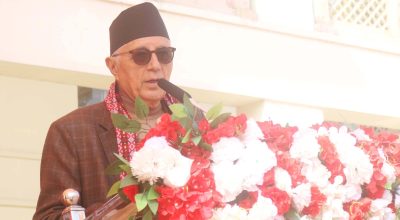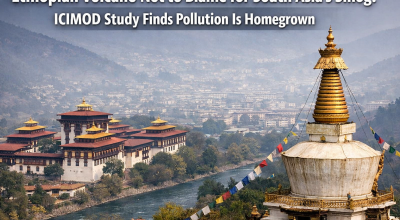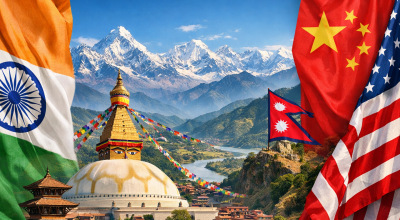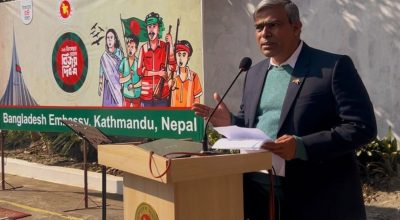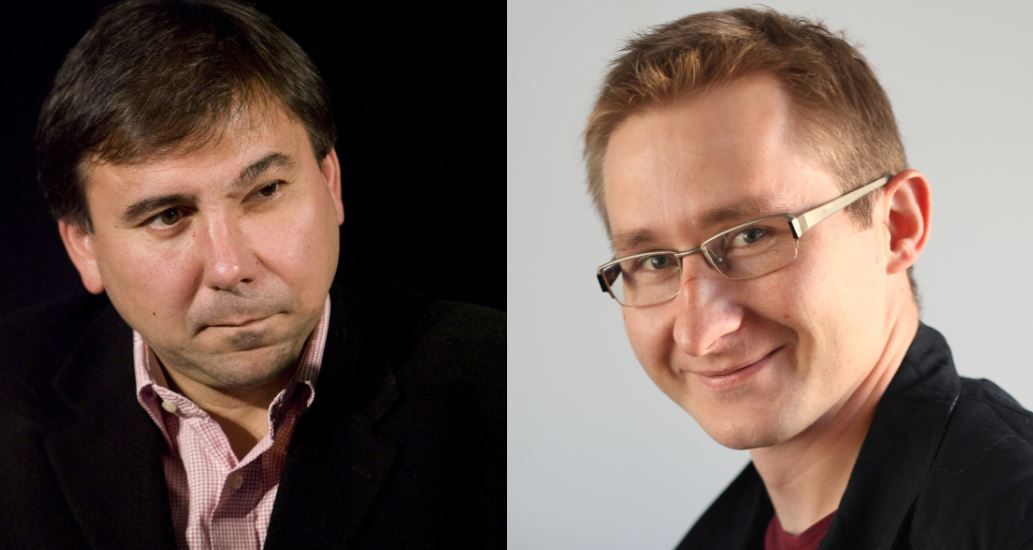
Sławomir Sierakowski: As the war in Ukraine enters its third year, few now believe that Russia can be defeated. What fate do you see in store for Ukraine?
Ivan Krastev: I think your question is too gloomy. The events of the last two years amount to a clear strategic failure for Russian President Vladimir Putin. When he launched his “special operation,” he assumed that Ukraine would fall in three days.
Still, Putin did succeed in convincing a majority of Russians that they are in an endless war against the West, one that Russia did not start.
SS: Why is this important?
IK: It means that no one in Russia blames Putin for losing, even though he didn’t achieve what he intended. Together with his success at normalizing the war in terms of Russians’ daily lives – the standard of living is not declining (at least economically) – this allows him to play a long game.
Putin believes that time is on his side. Since Western support for Ukraine will weaken, and the Ukrainians will exhaust themselves, Russia does not need to go on the offensive again. This matters, because the loss of even more Russians in another major offensive could start to cause problems for him. So, he waits, destroying Ukrainian infrastructure in the meantime.
Another point in his favor – confirmed by polling data from the European Council on Foreign Relations (ECFR) – is that most people in non-Western countries (except South Korea) believe they are witnessing a proxy war between the United States (and the West) and Russia. That means the Russian war narrative has been accepted in many parts of the world, including in important new middle powers like Brazil, India, and China. Viewed in these terms, Russia is not as isolated as many would like to believe.
SS: Why have attitudes toward Ukraine’s military prospects shifted so much?
IK: Ukraine’s current weakness is due, first of all, to the waning of Western support (both finance and weapons). But Ukraine also has a demographic problem. The average age of a Ukrainian soldier is now estimated to be around 43. That is why Ukraine is now changing its own approach to wage a defensive war. Most likely, the Ukrainians will be able to defend their positions, but they will not achieve anything more.
Another issue is the question of peace negotiations. I doubt Putin will pursue any talks before the US election, though he may signal that Russia is ready to negotiate, in order to weaken Western support for Ukraine even further. The desire among Westerners for the war to end implies that they will not assess such tactics objectively. Sometimes I get the impression that Ukraine’s leaders underestimate the difficulties that both the US and the Europeans face in providing money and weapons.
In any case, the outcome of the European Parliament elections in June, and of the US election in November, will be crucial to what Ukraine can achieve. But the political situation within Ukraine also matters. Tensions are growing between those on the front lines and those elsewhere. Different groups are blaming different players for the current situation, suggesting that maintaining political unity will be Ukraine’s next major challenge.
SS: What is Putin’s general goal? Does he still hope to conquer all of Ukraine, or merely to hold the territories he already has? I am reminded of what former US National Security Adviser Zbigniew Brzezinski said: without Ukraine, there is no Russian empire.
IK: The plan reflects the following logic: “What you want depends on what you can achieve.” Russian leaders are probably considering various scenarios right now. If they see an opportunity to capture places like Odesa or Mykolaiv – owing to the apparent weaknesses in Ukraine and among Western countries – they will do so. But as for conquering western Ukraine, I have my doubts, mainly because holding and controlling all that territory would not be easy.
Putin improvises, kind of like a jazz musician. When he sees a weakness, he exploits it. This will be important to remember when it comes to any negotiations. That said, unless Russia is completely defeated, the only peace Putin can agree to is one where Russia keeps the territory it occupies.
SS: How far might he go, opportunistically? Is he still interested in taking Kyiv?
IK: It depends on how he assesses the situation at any given moment. There was a time when taking the Ukrainian capital did not seem unrealistic. And let’s not forget: many critical elements of the Ukrainian economy – from the ports to the main defense industry around Dnipro and Kharkiv – are within 160 kilometers (100 miles) of the battlefield. It is folly to think that the Russians won’t seize these if they see an opening.
SS: Okay, but the most likely scenario is that Putin will either bring about a stalemate or hold the territory he has already captured. The West seems gradually to be accepting this. If the status quo does hold for many more months, or even years, what will that mean for Western countries?
IK: The status quo is war. But one could ask what will happen if the West agrees to let Russia control part of Ukrainian territory. Recent ECFR polling may offer some insights. Interestingly, most Europeans and Americans do not believe their own country is at war with Russia. Instead, the general view is that if Ukraine wins, the victory is ours; but if Ukraine loses, the defeat is its own.
Overwhelmingly, the same people who believe that Russia will win the war also believe that there will be no European Union 20 years from now. There is a big discrepancy between the real meaning of the war in Ukraine and how it is perceived by the public in many countries.
As for Ukraine, it can agree to lose territories only if it has security guarantees, meaning either NATO membership or another bilateral agreement with countries such as the US and the United Kingdom, combined with an assurance of joining the EU. Otherwise, the country will remain completely unstable, both economically and in terms of defense.
SS: Is there any good news?
IK: The good news is that the situation on the front line is changing. The day-to-day picture still isn’t great, but let’s not forget how terrible it looked a week after the invasion, when Russia controlled a much larger area. Ukraine may manage to get enough weapons from its own production facilities and from the West, allowing it to pursue a mobilization that could regain some lost ground (though military leaders won’t want to announce this ahead of time).
For now, though, Russia does have the upper hand, and it’s important to be realistic about that. It is easy for Europeans and Americans to pretend that we are not at war because we have a hangover from the miracle of 2022, when cascading Ukrainian victories created the illusion that Russia was a paper tiger that would soon fold. In fact, the Kremlin has successfully orchestrated the shift to a war economy. Commercial interests, not nationalist motives, underpin the mobilization on the Russian side. Russian leaders managed to mobilize the right people with money. Moreover, the quality of the Russian army has improved compared to the first months of the war.
If it seems that we are too pessimistic now in the West, that is partly because we were too optimistic before.
The Wobbly West
SS: US and European failures to agree on timely arms and aid packages in recent months have underscored some of the West’s own weaknesses. How should we think about that?
IK: One of the most important things I see is that external threats are no longer sufficient to generate any kind of national unity or mobilization in Western democracies. Poland is a prime example. There is a broad public consensus that Russia’s war in Ukraine poses a threat to Poland, yet Polish politics is still all about the struggle against internal enemies. The same is true in the US. For Donald Trump and his followers, President Joe Biden is a much bigger threat than Putin. As a result, politicians are taking policy positions that are wholly designed to win the next election; they could care less what impact the war will have.
In Ukraine, I fear the top leadership is growing more concerned about the supply of basic weapons and ammunition – not just the most advanced technologies. This anxiety will cause more political escalations of the kind we saw recently with the sacking of the commander-in-chief. That is what happens. One escalates when one has no other options. The next few months will be extremely important, because the closer we get to the US election, the fewer options Biden will have. The Republicans have shown that they will not cooperate with him on any issue.
SS: Are you pessimistic about the future of the EU and the US more broadly?
IK: I’m not known for being especially optimistic, but nor do I believe that the course of events is predetermined. Although Russia is quite stabilized internally, it faces serious problems in the long run. The question, then, is whether there will be adequate leadership and enough public concern to understand that we are in a situation that Europe has not faced since the 1940s. There are so many global crises that it is hard to keep people’s attention and interest. It is much easier to focus on internal political games.
Equally important, social-media platforms have fostered such deep political polarization in many countries that people have radically different perceptions of the same events. Some believe that what happens to Ukraine won’t have any impact on Europe, and others – like the Hungarian and Slovak governments – think the issue should not even concern the EU.
We should not be so critical of Russia, they say. Let it conquer Ukraine, and that way it will be busy with the process of swallowing and digesting another country. But it wouldn’t work out that way, of course. Instead, there would be a crisis in the Baltic states and other neighboring countries (perhaps excluding Scandinavia), and managing EU affairs would become even more difficult.
SS: Why isn’t the war in Ukraine a wake-up call for all EU countries?
IK: The problem is that you can wake up but still not get out of bed. That is what many in Europe have done. At the ECFR, we just did a survey showing that Europeans are divided into five separate tribes on the question of Europe’s greatest crisis. In places like Poland and Estonia, the war in Ukraine is seen as the most important; but in Germany, it’s immigration; in Italy, it’s the economy; and in the UK, it’s COVID-19.
SS: Are Biden’s re-election prospects as bad as they seem, or are there dynamics that we (and the media) are missing?
IK: We have two unpopular candidates. Though both are old men, age seems to be a bigger problem for Biden. Still, consumer sentiment in the US has improved over the past two months, and he can probably count on this trend continuing. The most important thing is who will mobilize more voters. While the Democrats’ potential voter pool is larger, Trump is quite effective in mobilizing the Republican Party base.
But eight months is a long time in politics, and Biden is dealing with some major problems. Neither the war in Ukraine nor the conflict in the Middle East is helping him. Americans are tired of wars. When I was in the US recently talking to Republican policymakers, I was struck by their isolationism. “What are we doing in Ukraine?,” they asked. “What are we doing in the Middle East?” For many Republicans who support Trump (which is most of them), the only war worth fighting is the one against the reviled “deep state” – which includes not just the Pentagon and the CIA but also Big Tech, Big Pharma, and so forth.
Equally important is the generational divide that has become so evident during the war in Gaza. The issue here is not that Biden is unaware of his younger constituents in universities; it is that he cannot understand what they are doing, and they cannot understand why he supports Israel. This is a somewhat new, and very important, division in the Democratic Party coalition.
I am reminded of the Russian election in 1996. On one side, you had an aging and increasingly unfit Boris Yeltsin, whose supporters said, “This is a fight for democracy; even if he’s not the best candidate, he’s the only candidate.” On the other side, you had the Communist Party’s Gennady Zyuganov, a candidate who would change everything. And, lest we forget, when Yeltsin won, many wondered the next day, “Who is really in power?” I believe such uncertainty in the US would cost the world a great deal.
In my opinion, Biden has done everything he could to shore up America’s global role. But part of that means understanding the limits of American power. We now have militants in Yemen blocking major trade routes, and it is clear that the US has lost some of the influence it once had over allies like Israel, Hungary, and others. The world, in general, is not in the best place. The level of uncertainty and insecurity means that no electoral victory will lead immediately to stability.
Middle Earth
SS: Do you think political leaders generally cannot achieve as much as they once did? Has the importance of political leadership decreased as the importance of larger social, economic, and technological forces has increased?
IK: Well, any diminution of leaders’ influence that has occurred certainly is not universal. On one hand, China failed to influence the recent elections in Taiwan, and now it will have to live with the Taiwanese president that it did not want. On the other hand, the political leaders of some so-called middle powers are becoming more important. These include Turkish President Recep Tayyip Erdoğan, Indian Prime Minister Narendra Modi, Crown Prince Mohammed bin Salman in Saudi Arabia, and others. Some Ukrainian leaders have told me they trust Erdoğan and see him as the one who can help them vis-à-vis Russia. These leaders are talking to everyone, globally. They suddenly have much more influence than you would have predicted just two or three years ago.
Even in the EU, a single leader can basically block a decision backed by all 26 other member states, completely changing the direction of European policy. In this context, one cannot say that political leadership is losing its importance. Or look at Poland, where we are witnessing the extent to which a change in political leadership can transform the way a country perceives its surroundings.
The larger problem for democracies is that every election is starting to look like a regime change, where the outcome will fundamentally change a country’s identity or strategic posture.
SS: We often forget about these middle powers when thinking about the West’s confrontation with Russia or China. How is their new assertiveness affecting international relations?
IK: All these countries are very active on the geopolitical stage. Their leaders are everywhere, and they are becoming important negotiating partners. Look at Azerbaijan. By dint of its own geopolitical maneuvering, it recently managed to achieve what it had been seeking for over three decades: seizing Nagorno-Karabakh from Armenia.
This example points to one of the biggest changes of the past two years. Previously, with so many conflicts around the world locked in stalemates, there was a widespread perception that armed force was not really an option. But now, we have begun to see that such “solutions” exist.
SS: What other countries stand to gain from the rise of middle powers? Will Japan, South Korea, Taiwan, and Singapore fare well in the current geopolitical environment?
IK: It’s difficult for them, because – like most Asian countries – they see China’s rise as a threat to their economic and political security. They owe much of their success to the US, and none can contain China on its own. They were happy to see Biden strengthening US alliances, but now they are asking themselves how US policy might change.
Interestingly, some of these countries have been quite eager to offer support to Ukraine, not because they are particularly concerned about what is happening in Europe, but because they are keen to test the credibility of American security guarantees and commitments. They have good reason to be nervous, now that the West is failing to sustain its support for Ukraine.
One also must remember that these countries are politically divided. As many as 60% of Taiwanese voters supported candidates who advocated a much friendlier approach to China than the current president. One must not assume that any of these countries hold strategic positions that cannot change.
SS: In other words, Japan, South Korea, and Taiwan are supporting Ukraine because they want US guarantees to mean more, so that conflicts in their own region are not resolved militarily?
IK: If America doesn’t get involved, they’re not going to get involved, either – period. They will be very active and supportive if there is a coalition that is vigorously led by the US, but it is unrealistic to think they will continue sending ammunition and funds to Ukraine if the US backs out. It is the same with Taiwan: If the US steps away, the Europeans are not going to step in and take responsibility for the island’s defense.
Moreover, many countries simply lack the capacity to mount a strong defense on behalf of others. South Korea was better prepared than most to supply Ukraine, but did you know that North Korea has produced and delivered more conventional artillery shells to Russia than Europe has to Ukraine over the past year?
Although Europe has the resources, it has been slow to crank up large-scale industrial production in the defense sector. Part of the problem is that each member state is more interested in maintaining its own defense industry than in coordinating to manufacture the most products in the most efficient manner possible. The European Commission says that Europe will have 1.1 million artillery shells for Ukraine by the end of the year. But even if we can produce them, it remains to be seen whether we will deliver them. Many countries will be tempted to hoard them for their own militaries.
European Testing Grounds
SS: What are your predictions for the French presidential election in 2027?
IK: That is a long way off, so I don’t believe anyone can predict much right now. Still, it seems likely that the right-wing leader Marine Le Pen will chalk up a victory in this year’s European Parliament elections. Her party has a ten-point lead over French President Emmanuel Macron’s party, and recent polls predict that in seven EU countries – including Italy and France – the nationalist right will win the largest share. But even if the European far right performs better in these elections than it should, it has a poor track record of fostering cooperation within its ranks, and cooperation is what matters at the European level.
Another interesting finding in the polls is that much of the far right’s current support – outside of Germany and two or three other countries – stems not so much from fear of immigration as from anxiety over the Green Deal (plus lingering anti-vaccine and anti-lockdown sentiment). Interestingly, even when far-right governments come to power, immigration often does not decline. A good example is Italy, where only 10% of respondents in our ECFR poll see it as the most important crisis. During the current right-wing government’s past year in power, the number of immigrants increased compared to the previous year.
SS: The same thing happened in Poland…
IK: Yes. I am reminded of the early 1990s, when Polish President Lech Wałęsa would say that “you can make fish soup out of an aquarium, but you can’t make an aquarium out of fish soup.” It is not easy to return from populist rule to the rule of law and normalcy. The last time Prime Minister Donald Tusk came to power after Jarosław Kaczyński and his Law and Justice (PiS) party, in 2007, it was enough merely to be “normal” instead of “crazy.” But now Poland is so divided that elections and other democratic processes are beginning to resemble a sustained civil war. No one is demobilizing. Losing an election no longer means that you consent to the other side governing. How does one escape this politics in which opponents are not adversaries to be defeated, but rather enemies who must be destroyed? If one side channels Carl Schmitt’s concept of the political, the other must do the same.
This is the problem facing everyone. The EU stands for the rule of law and impartial institutions, but in a highly polarized political environment, almost no one believes in impartiality anymore.
SS: How do the recent changes in Poland look from the outside? Do people understand how complicated Tusk’s task is, or do they think he is merely getting revenge on Kaczyński?
IK: Perceptions vary because people always look at foreign countries through the lens of their own country’s experience. What I see in Poland is a firm decision by PiS, now in opposition, not to allow the new government to govern. The president, who remains loyal to PiS, did what he could to delay the formation of the new government, and he has since vetoed whatever he can. The perverse irony is that now PiS is the one invoking the rule of law in its objections to Tusk’s efforts to clean up the state.
SS: Do Western observers understand this?
IK: Most are uncomfortable with the situation, especially in the EU institutions. They believe the courts should be apolitical. But that doesn’t really help in a situation like this, where PiS packed the courts with improperly appointed loyalists. Even from the outside, it should be clear that Tusk probably had few if any options other than the ones he has chosen.
Still, one wonders what exactly he can achieve. For example, to unlock the EU funds that were frozen because of the last government’s judicial reforms, Poland must meet certain technically defined requirements. What if the president vetoes the government’s efforts to meet those criteria? Can the EU simply disregard its own criteria?
Usually, in a democracy, parties that lose an election regroup while the winning parties govern. But PiS simply acts like it never saw the election results. This attitude probably owes something to the fact that there will be local elections this year, or to the possibility that Trump – whom PiS treats as a great ally – may win in November. PiS is a large party that has managed to consolidate its support base. It is saying, “You may have a majority, but that doesn’t mean we will let you govern.” This attitude may be the new reality in European politics. It’s happening in Poland, and it could happen elsewhere.
Ivan Krastev, Chairman of the Center for Liberal Strategies, is a permanent fellow at the Institute for Human Sciences. Sławomir Sierakowski, founder of the Krytyka Polityczna movement, is a Mercator senior fellow.
Copyright: Project Syndicate, 2024.
www.project-syndicate.org




